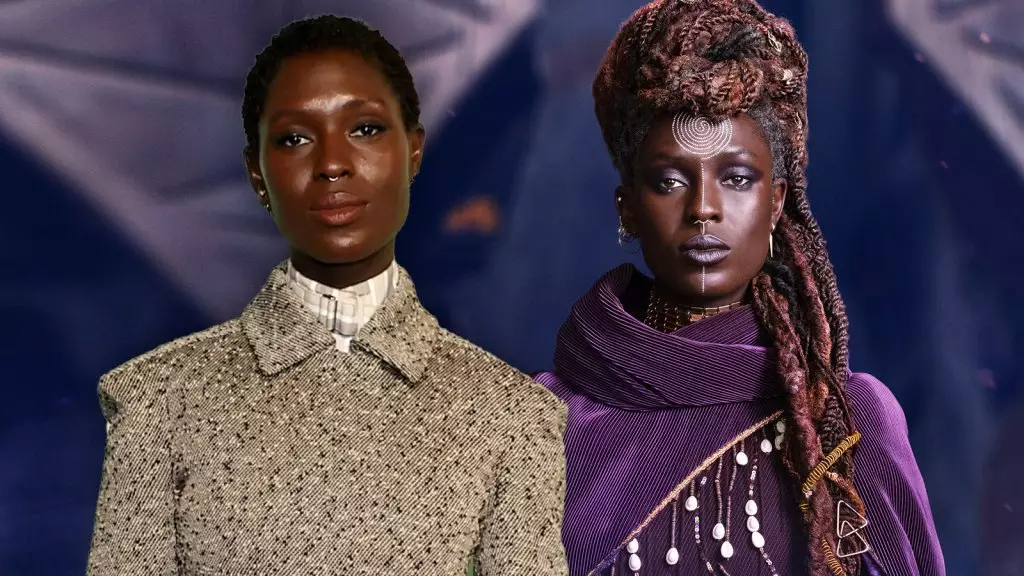In an era where diversity and inclusion are increasingly emphasized in entertainment, the recent comments by Jodie Turner-Smith concerning Disney’s treatment of her co-star Amandla Stenberg shine a spotlight on the darker side of fandom and the responsibilities of major studios. As the industry has evolved, audiences have become vocal about their expectations for representation, yet there remains a troubling gap between this public demand and the actual actions taken by powerful entities like Disney. This article explores the implications of Turner-Smith’s criticisms and the necessity for corporate responsibility in the face of online harassment.
Turner-Smith, known for her role as Mother Aniseya in Disney+’s *The Acolyte*, expressed her disappointment regarding Disney’s lack of response to the cyberbullying directed at Stenberg. In her interview with *Glamour UK*, she underscored the emotional labor that Stenberg invested in their character, emphasizing that such dedication deserves protective advocacy from the studio. This raises a poignant question: When individuals like Stenberg face relentless online harassment and societal backlash for their representation in mainstream media, why do the organizations that benefit from and promote diversity often remain silent?
Cyberbullying is a pervasive societal issue that harms individuals psychologically and emotionally. For artists, particularly those from marginalized communities, the ramifications can be magnified. Turner-Smith’s commentary highlights an uncomfortable truth: the corporate silence on such harassment not only fails to protect the individuals involved but also perpetuates an environment where bigotry can thrive without repercussion. It sends a message that corporate values do not extend to defending their artists against undue hostility.
Disney’s Responsibility and the Cost of Indifference
Turner-Smith asserted the necessity for stronger statements from Disney, stating, “They’ve got to stop doing this thing where they don’t say anything.” Her words reflect a growing frustration among artists and audiences alike about the inconsistency between corporate rhetoric and action. The expectation is clear: if a studio is going to champion diversity and inclusion, it must also confront the racist vitriol that ensues when such initiatives are taken.
In her powerful remarks, Turner-Smith also pointed out that the failure to address this toxicity isn’t just ethically questionable—it’s financially imprudent. She argues that acknowledging and supporting artists of color could actually be beneficial to Disney’s bottom line, suggesting that the studio’s hesitance comes from a misguided fear of backlash from a vocal minority of fans who misuse terms like “woke.” This calls into question the moral compass of powerful studios: should profits come before principles?
Stenberg herself has been candid about the “hyper-conservative bigotry” she faced, which began even before *The Acolyte* premiered. Expressing her feelings through music, she echoed the frustrations of many artists who confront this kind of negativity. Her lyrics resonate: “Last I recall, WOKE was something we created. Speak truth to power.” Her courage to address such daunting issues is commendable, but highlights a grim reality—that artists are often left to navigate this turmoil without institutional support.
The echo chamber of social media can amplify not only praise but also intolerance, creating an environment where racially charged attacks flourish. Stenberg’s acknowledgment that the vitriol impacted her significantly serves as a reminder of the human cost of such online harassment. The question remains: what mechanisms are in place, or should be in place, to protect individuals in the industry?
The collective voices of Turner-Smith and Stenberg signal a demand for accountability in the entertainment industry. Major studios like Disney are urged to not only promote diversity but to actively defend their artists against harassment. Their silence, in a landscape filled with systemic issues around race and representation, is becoming increasingly untenable.
Moving forward, it is imperative for studios to foster an environment where artists feel safe and supported, and where constituents of fandom are held accountable for their words and actions. Support can no longer be a mere marketing tool; it must be a foundational pillar of modern entertainment, demonstrating that in the fight against racism and bigotry, silence is simply not an option.

